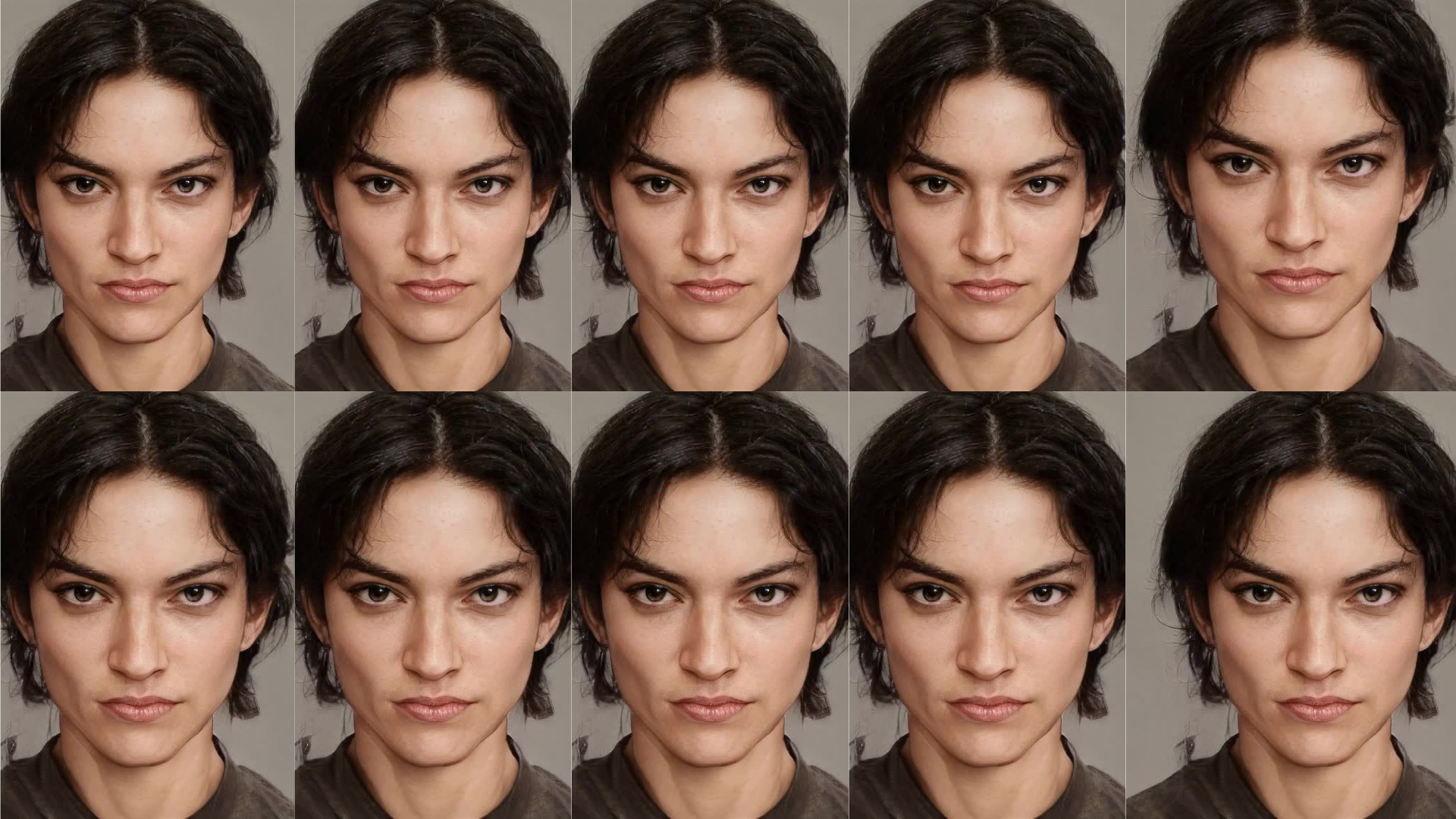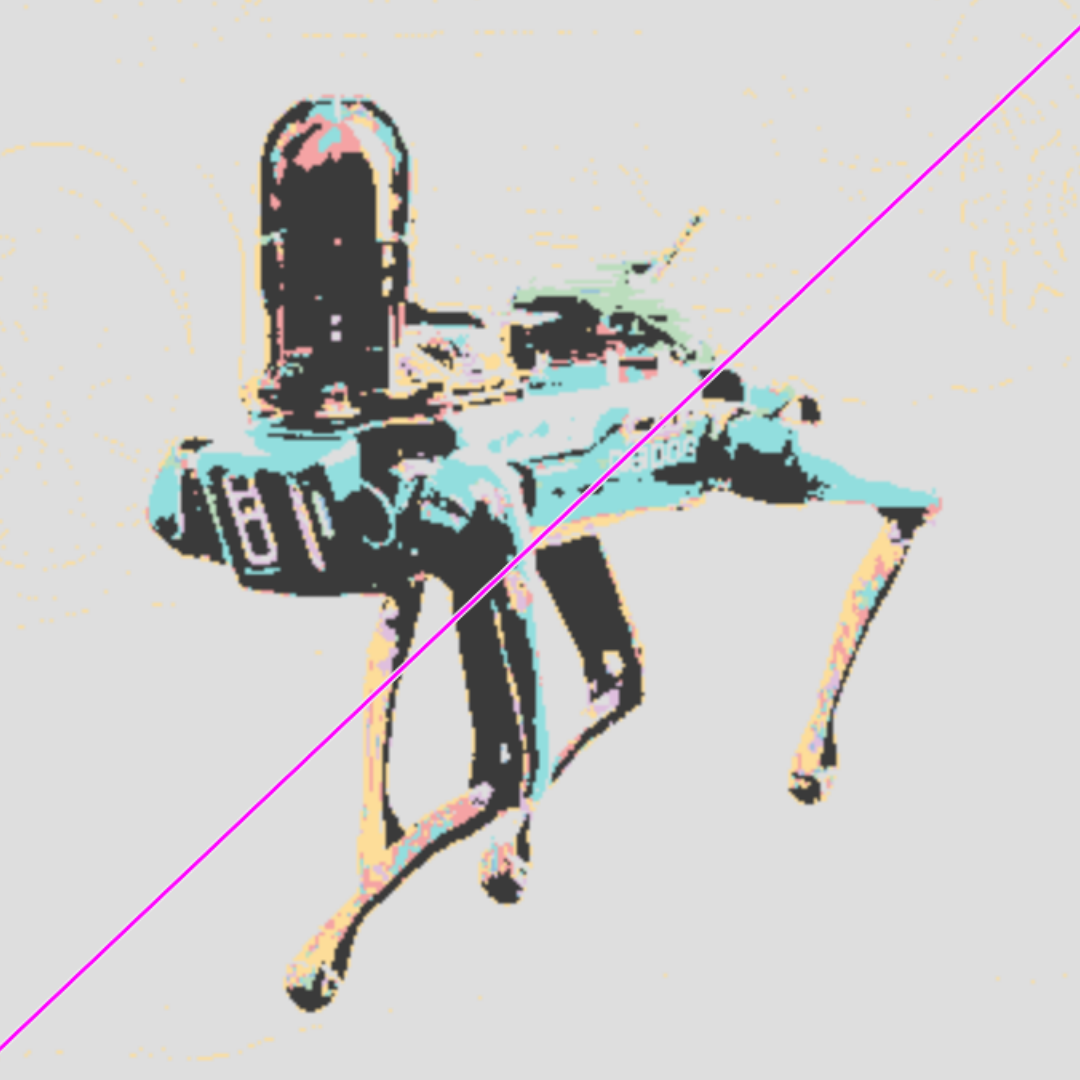Protoype
May 27, 2022
Ana Roman
Ana Roman is an audiovisual AI artist, music producer, and creative technologist. Her latest endeavor is Skulptor, a solo-electronic-frequency project inspired by biomimicry, mycological cybernetics, and insect behavior. She operates a future-focused music label called Fokus Global.

There’s no human-made Constitution for what we’re about to see:
TOTAL TECHNOLOGY TAKEOVER.
What are the origin stories for Skulptor and your interest in the avatarizations of the self?
Looking back, Skulptor originated as a manifesto and philosophy on the Singularity, the moment technology takes over as the dominant lifeform, and what that means for humans. This project came about as I began playing with generative artificial neural networks, and I realized there were a lot of personalities within me that needed to come out. I asked myself, How many identities of mine are out there? How many ways can I stay alive in this pandemic? How many parallel iterations of myself are already trapped in the machine?
I understood early that the pandemic would accelerate the virtualization and avatarization of ourselves, so I began to wonder, what does that sound like? I began by traveling through airports to record the resonances there — the sounds of people coming and going through major nexus points on a transnational network. I’d use contact mics to record the conversation of construction workers and engineers as they built Hudson Yards, or I’d sample feedback loops in liminal spaces. I was interested in the frequency patterns of insect wing vibrations, so I’d bend time signatures as if I was bending time. All of these experiments meant I was moving away from the dance and electronic music format I was used to as a DJ and toward more deliberate, intentional sound design.
This approach stemmed from my obsession for the avatarization of the self and how people fall in love with that instead of the Real. Consider how people look at you through the pixelation of an image. Studies show that the eye can only digest so many of these pixels, and this affects how your brain reads a person’s face. Think about facial recognition software in airports. I’ve been detained twice because the pixels of my face were misinterpreted by an AI as someone else, someone the authorities were looking for. How does that affect my own psychology? How does that elevate or damage my soul or the time I have as a human? So I’ll match the frequency of my tracks with those resonated by bit pixels, so a video of myself dancing has the same visual and audio frequencies.
These are the conversations happening within cosmo-technology, cyber healing, and digital health that are happening for some but not all, dependent on a person’s relationship to data. I’m surprised by how many people still think fossil fuels and electrical power are Earth’s most sought-after resources. They’re not. People want data. He who has the most data wins. And how this data informs our relationships to each other is connected to how we see the self.
Eyez Wide Byte (2022)
There will be avatarization of the self completely out of your control, or you can take control of it yourself. It’s not about creating an alter ego. Skulptor for example isn’t an alter ego, but the art itself. We’re all swipeable humans, but I’ve made the choice to not be swipeable.
Are you familiar with Trevor Paglen? Some of his projects explore how billions of security cameras surveil the citizens of the world without their consent. He sometimes focuses on London, where there are 700,000 cameras for 9.5 million people. That’s about 75 cameras per 1,000 people. It’s the third most surveilled city in the world by that metric, behind Taiyuan and Wuxi in China. Aside from London and three cities in India, the top 16 most surveilled cities are all in China. But like Paglen, I find it interesting that London tops the charts.
This is an example of what I’m exploring with Skulptor. Maybe this correlation is why so many people in London have caught on to my work. We’re so hyper-surveilled, online and off. I’m fascinated with how people gaze at me through Instagram. I’ll morph my face with AI to pose as Skulptor. You’ll never see my real face depicted there. I think a lot of digital creators, especially femme, non-binary ones, forget that you're in a program, you're in a machine, you're a morphing object, you're picking things apart, you’re doing things to bodies. You’re in your own multiverse that contains different aspects of your personality. And you have to be very careful. People will put your avatar on a pedestal before they even realize what you look like or that you’re not a man. They could be attracted to your avatar and what it represents, but not who you are as a person.
Do you have a strategy for navigating between your online avatars and your real self?
My strategy is to continue prototyping myself by fully expressing who I am. I’m not afraid of perfectionism and I like to stay hyper-focused. Am I afraid of some things? Yeah. But I want my role as an electronic music artist to feed my soul and take part in a larger conversation. None of this will work unless I constantly collaborate with other people, and not just over the Internet, but in person, too. Creative collaborations are what build the future. I’m not convinced the answer lies solely in community. Communities need to collaborate. The pandemic was a blessing in this regard because it forced me to reach out to people and cultivate my own music family. It felt like the chemicals in my brain had to change.
A lot of the work I’ve made as Skulptor relies on other people. I learn new skills through Discord, different forums, open source, and people halfway around the world that are now my friends. I think we should all be open-source artists. We have the responsibility to share information and knowledge and to uplift others instead of gatekeeping.
I’ve met several people online since the pandemic and my idea of virtual friendship has radically changed. I wish these friends lived where I live so we can see each other more often. Yet I’ve noticed a shift within cyberspace, as if these people are actually in the room with me, or if in fact the idea of the room doesn’t matter, it doesn’t exist. The boundary is gone. It feels like the distance I have with a virtual pen pal is now a lot smaller. I’m closer to them than the friends who live across the street.
Welcome to the Singularity. Everything's about to change, and you need to be well aware of your rights and how it will impact your physical and mental health. The way we’re plugging in will affect our brains, and you’re sorely mistaken if you think it doesn’t.
I’m frustrated with how many people have a knee-jerk reaction to AI out of fear, who don’t want anything to do with it. They think that if they just stay away from AI, it’ll stay away from them. Every person should realize that if you aren’t holding conversations on AI and data sets, or if you refuse to gain a base-level understanding of how to navigate these fields, you’re going to be left behind in a severe way. AI will continue to affect all artists creatively, from music publishing to digital avatars. It’s your responsibility to educate yourself and to know exactly what your data is used for.
There’s no human-made Constitution for what we’re about to see: total technology takeover. Quantum computing becomes emotional computing. We’ll reach a point where technology will be completely in sync with your love, your wants, your needs, and your attractions, all before you can even hit Enter. We live in a tree of power in which shareholders and technocrats control the trunk and we are the meager branches. If we’re not careful, the shareholders will only hire engineers and scientists to build the surveillance technology we don’t want, instead of the solarpunk society we do.
There will be avatarization of the self completely out of your control, or you can take control of it yourself. It’s not about creating an alter ego. Skulptor for example isn’t an alter ego, but the art itself. We’re all swipeable humans, but I’ve made the choice to not be swipeable. The Perfect Blue scenario in which the image of yourself gets away from you is so postmodern. I think we’re healthier than that now. And I think we're more empowered to take charge.
I would much rather live in that space: not always on, not always a cult of personality, not always an influencer, not always narrativizing my life on social media, but being fully empowered to include sincerity and my human soul in my work. I want people to see my truth, whether through my prototyping, the digital art and videos I make, or projects like Skulptor. There's always a human element to my work, and good AI has humanity to it. Good music, even if it's algorithmically-trained, hits a universal note in everyone’s souls. But AI can’t do that alone, it needs our brains and human touch. Advertisers can spoon feed us narratives about how AI has successfully replicated the human condition, but they never will.
I would much rather live in that space: not always on, not always a cult of personality, not always an influencer, not always narrativizing my life on social media, but being fully empowered to include sincerity and my human soul in my work.
When I see great AI art, I think, “Wow. So cool a robot did that.” But then I stop and think, “Wow. We fucking did that.”
I love electronic music because of its function in contemporary human society. Sure, I want you to have a good time listening to my tracks. I want you to fuck to them. I want you to drive to them. I want you to clean your house to them, to dance and get really nasty with them. But aside from utility, in the back of your mind, I want you to appreciate an awareness of the concept behind it. It’s sort of like when you listen to Hounds of Love by Kate Bush, and you know exactly what the concept was behind it. Electronic music and art in general can be more than just escapism. We can use it to have conversations that are brain-expanding.
When you go see my live set, you can be on drugs, but I don’t want you to rely on them to enjoy it. I am the drugs.




